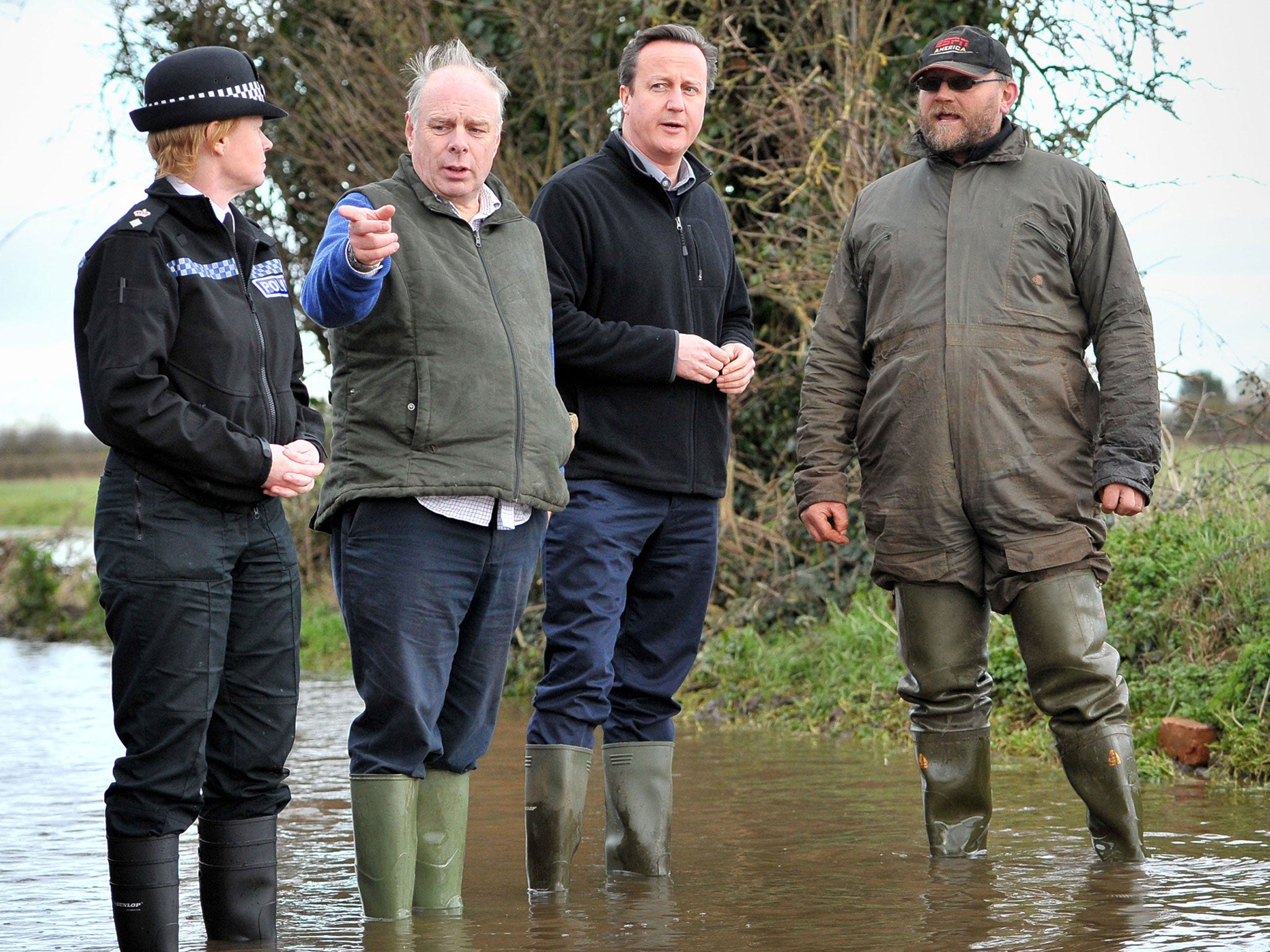PMQs: We've gone through the looking glass, and now the Tories want to spend, spend, spend
For their part, Labour want to know where this money is coming from


In an instant, politics was inverted. The Conservative Prime Minister promised to spend what it takes, and accused the Labour opposition of refusing to promise to spend anything at all. Ed Miliband wanted to know what David Cameron meant by saying “money is no object” today. Did it mean that he would be cancelling the 500 redundancies for staff of the Environment Agency? Did it mean that he would spend “whatever it takes … to make sure we have a resilient country for the future”, which were the Prime Minister’s words?
Sadly he failed to ask about two other possibilities. One is that Cameron was engaged in a grammar lesson at his Downing Street news conference, observing to the assembled specialists in the use of English that in the sentence, “money is no object”, the word “ money” is in fact the subject. The other is that the Prime Minister had decided to elevate the occasion to the philosophy of economics and was reminding his audience that, while notes and coins are physical objects, money itself is an abstract concept that depends on confidence and cultural assumptions of value.
It didn’t matter, because Cameron didn’t answer the two questions that Miliband asked in any case, saying that had spent more than the party opposite and would do so in future, at one point listing the years to which his promise applied: “2015, 2016, 2017, 2018, 2019, 2020.” Although he had started by saying one of those small-printy things that they say really fast in radio adverts, that his promises applied only to “our relief efforts”. When he said a resilient country, it turned out that he did not mean putting workers on the boards and making the British economy German.
He said that Labour couldn’t match his pledge because Ed Balls had proposed “zero-based budgeting”. I think he meant that, because all spending was under review, no Labour spending promise could be relied on, but it sounded as if Cameron thought a zero-based budget was £0. This encouraged one of the stranger features of modern parliamentary politics, namely the conversation conducted by heckle and sign language between the two front benches as the dance and backing vocals to the actual Questions to the Prime Minister. While David Cameron was trying to listen to the last question, from John Baron, a Conservative backbencher, Ed Balls shouted across, at George Osborne, “Am I allowed to reply?” Miliband joined in, mouthing questions to the Chancellor while the Prime Minister carried on and the Speaker looked on benignly.
Either we have gone through the looking-glass, or something has changed on this side of the mirror. The Conservatives are now the party of limitless public spending, and Labour is the party that asks sceptical questions about it. But, on this side of the mirror, Mark Carney, the governor of the Bank of England, had just held a news conference in which he upgraded his estimate of growth this year to 3.4 per cent. In the long-forgotten days when it wasn’t raining, that would be called an economic boom.
That really could turn politics upside down.
Join our commenting forum
Join thought-provoking conversations, follow other Independent readers and see their replies
Comments
Bookmark popover
Removed from bookmarks